-
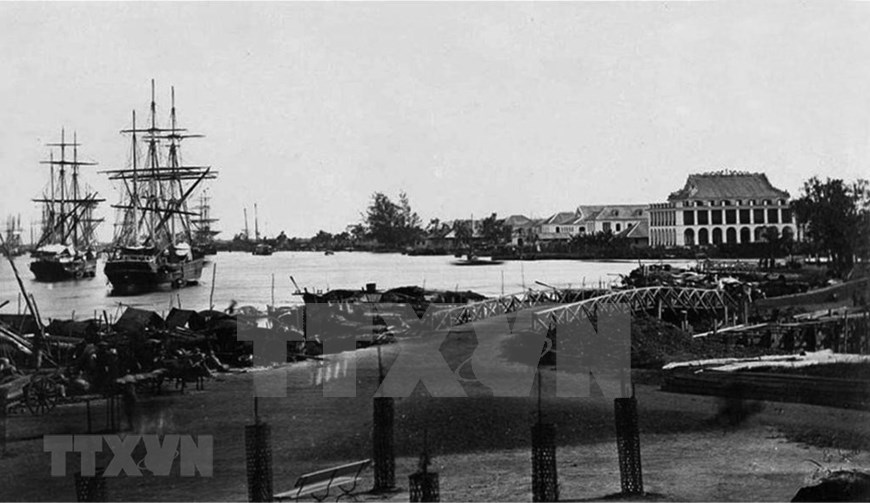
On June 5, 1911, from Nha Rong Wharf, Nguyen Tat Thanh set foot on a journey abroad in the ship Admiral Latouche Treville to France, beginning his journey for national salvation (Photo: Archive)
-
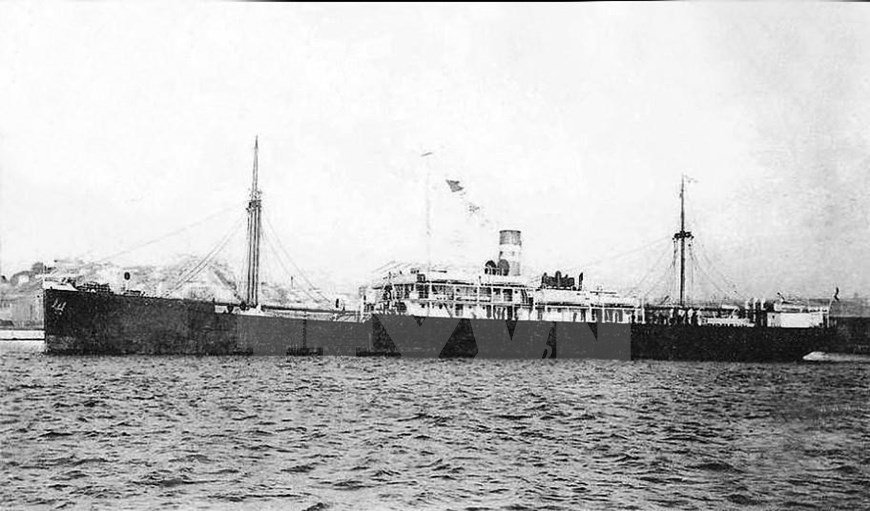
On June 5, 1911, from Nha Rong Wharf, Nguyen Tat Thanh set foot on a journey abroad in the ship Admiral Latouche Treville to France, beginning his journey for national salvation (Photo: Archive)
-
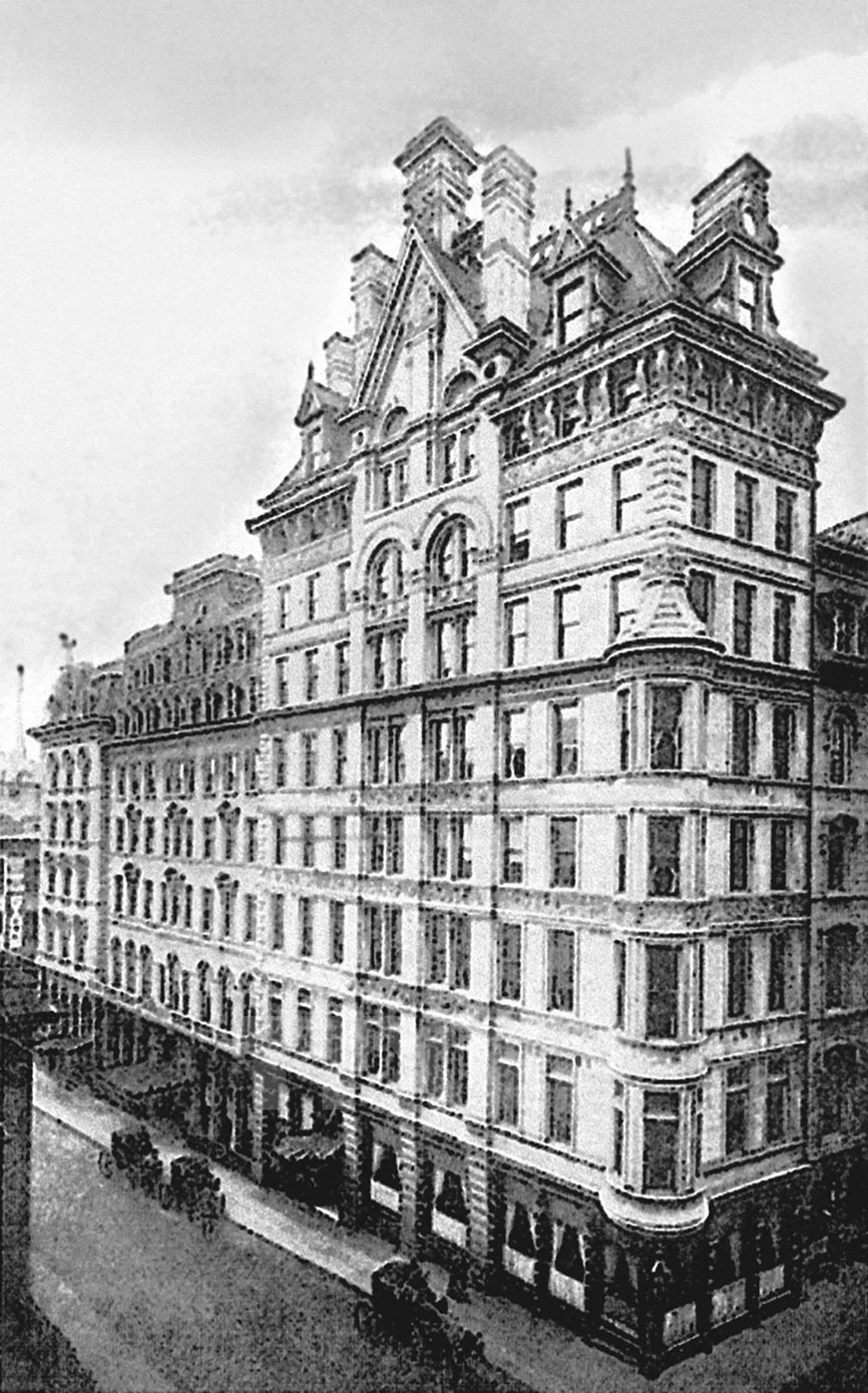
Omni Parker Hotel, Boston, the US, where the patriotic young man Nguyen Tat Thanh served as a kitchen helper from 1912-1913 (Photo: Archive)
-
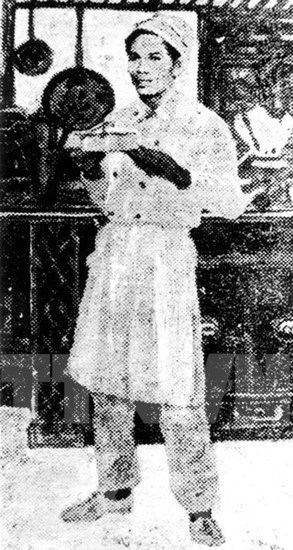
Young Young man Nguyen Tat Thanh served as a kitchen helper at Carlton Hotel, the UK in 1913 (Photo: Archive)
-
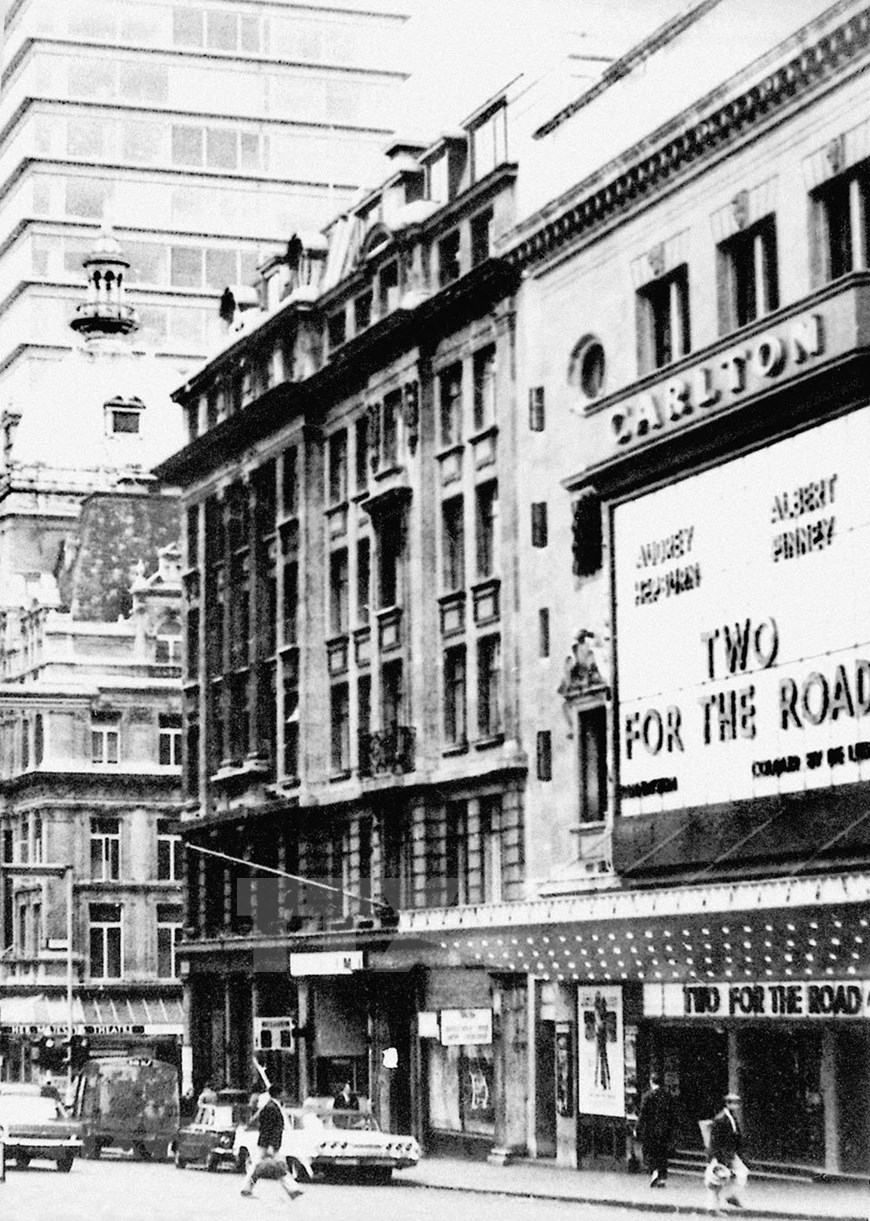
Carlton Hotel, where the patriotic young man Nguyen Tat Thanh worked when he was in the UK in 1914 (Photo: Archive)
-
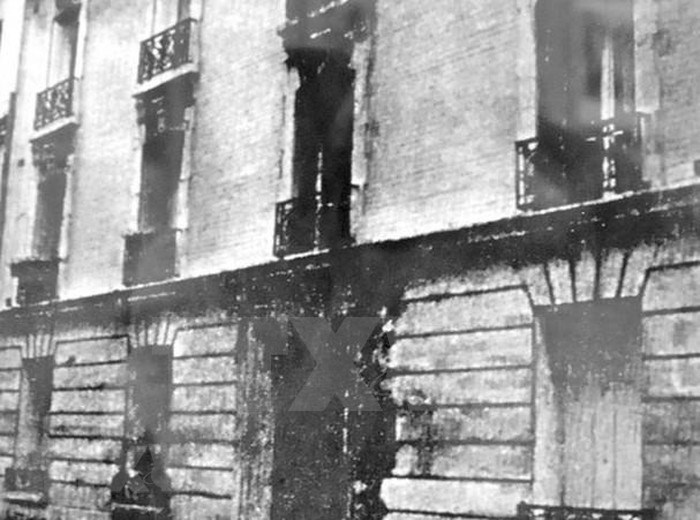
After a long and hard journey through many countries, including France, the UK and the US, Nguyen Ai Quoc made his way back to France in 1919 and stayed at No. 6 Villa des Gobelins (arrondissement 13, Paris). Here, he directly involved in the overseas Vietnamese and French workers’ movements and changed his name to Nguyen Ai Quoc. In 1919, Nguyen Ai Quoc put forward an eight-point list of demands of the Vietnamese people in front of the Versailles Conference (Photo: Archive)
-
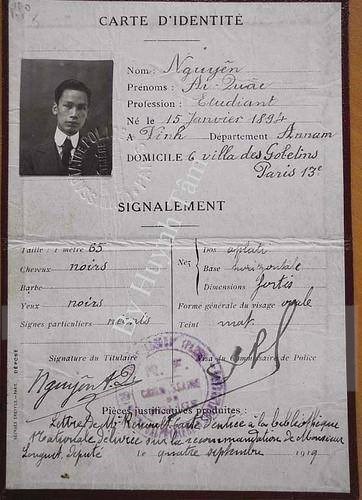
Nguyen Ai Quoc’s identity card in Paris, France in 1919 (Photo: Archive)
-
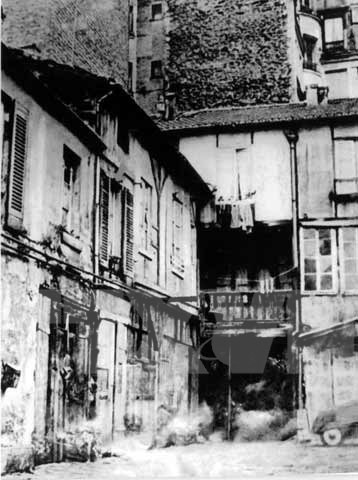
Nguyen Ai Quoc read the first draft of theses on national and colonial issues written by V.I. Lenin in June, 1920 and published in L’Humanité newspaper, an organ of the French Socialist Party, on July 16-17, 1920. The headline of the article relating to the colonial issue immediately attracted Nguyen Ai Quoc’s attention. In Photo: No. 9, Impasse Compoint, Quarter 17, Paris, where Nguyen Ai Quoc lived while in France (Photo: Archive)
-
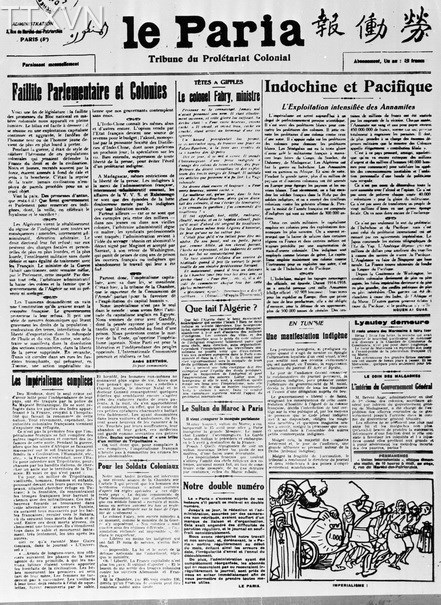
In 1921, with patriots from the French Colonies, Nguyen Ai Quoc founded the Union Intercolonial of France. One year later, the union published Le Paria newspaper to unite, organise and guide the movement of national liberation in the colonies. (Photo: Archive)
-
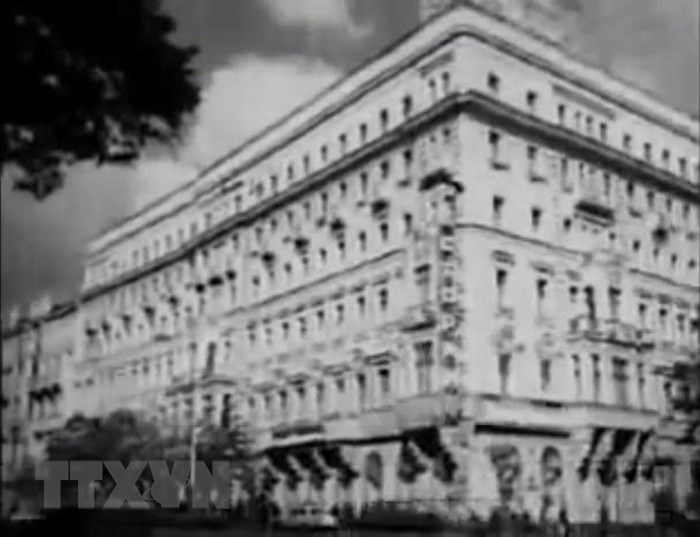
Nguyen Ai Quoc went to the Soviet Union from France in June, 1923, where he participated in the fourth and the fifth Congress of the Communist International. He lived from late 1923 to early 1924 at Lux hotel, No. 10 Tverskaya (Photo: Archive)
-
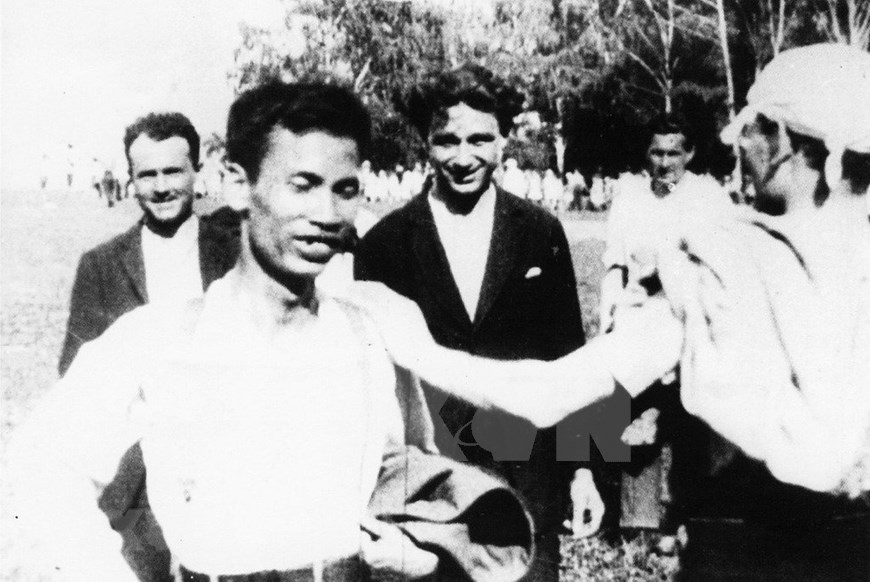
Nguyen Ai Quoc and local people on Sparrow Hills, when he participated in the fifth Communist International Congress in Moscow (June 17-July 8, 1924) (Photo: VNA)
-
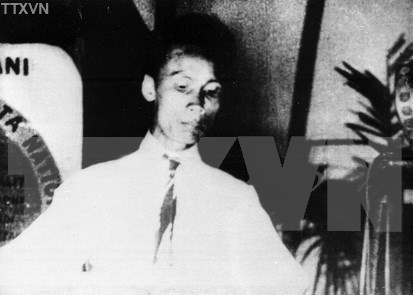
Comrade Nguyen Ai Quoc delivers speech at the fifth Communist International Congress in Moscow (June 17-July 8, 1924) in his capacity as a delegate of the Communist Party of France (Photo: Archive)
-
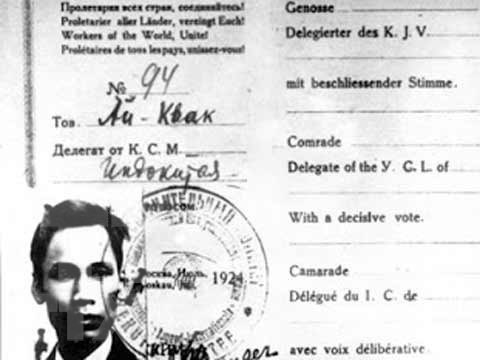
Delegate card of Nguyen Ai Quoc at the fifth Communist International Congress in Moscow, June 17 – July 8, 1924 (Photo: Archive)
-
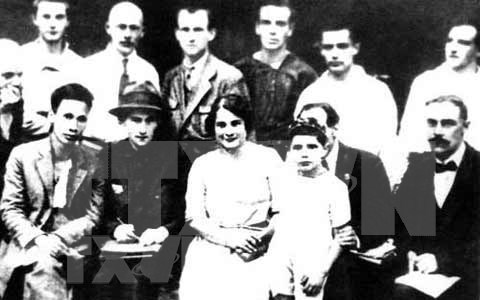
Nguyen Ai Quoc (first row, first left) and participants at the fifth Communist International Congress in Moscow, June 17 – July 8, 1924 (Photo: Archive)
-
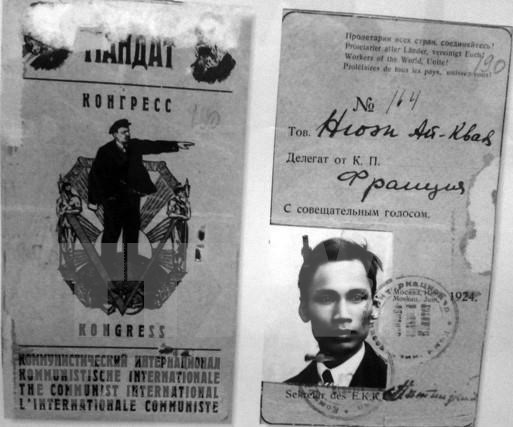
Delegate card of Nguyen Ai Quoc at the fifth Communist International Congress in Moscow, June 17 – July 8, 1924 (Photo: Archive)
-
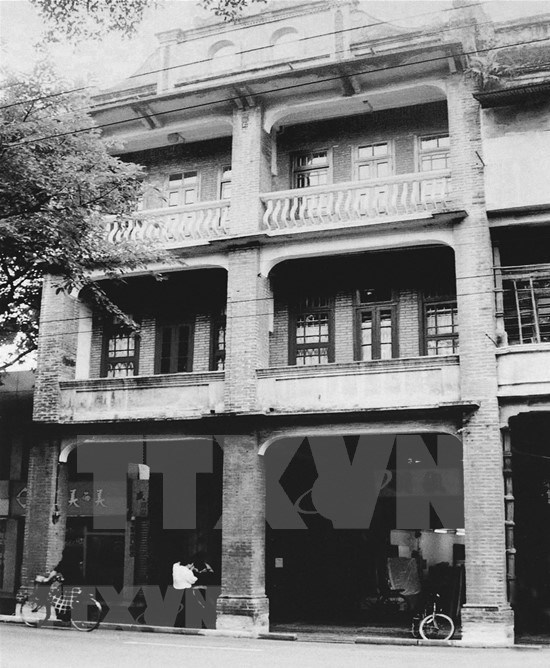
In June, 1925, Nguyen Ai Quoc founded the Vietnamese Revolutionary Youth League in Guangzhou (China) and organized the “Communist League” as the core of the association, training communist cadres to lead the association and popularize the Marxism-Leninism in Vietnam. House No. 13, Yuan Ming road (248-250 at present), Guangzhou, China was among the places where the leaders of the Vietnamese Revolutionary Youth League had conducted the courses of political training from 1925 to 1927 (Photo: Archive)
-
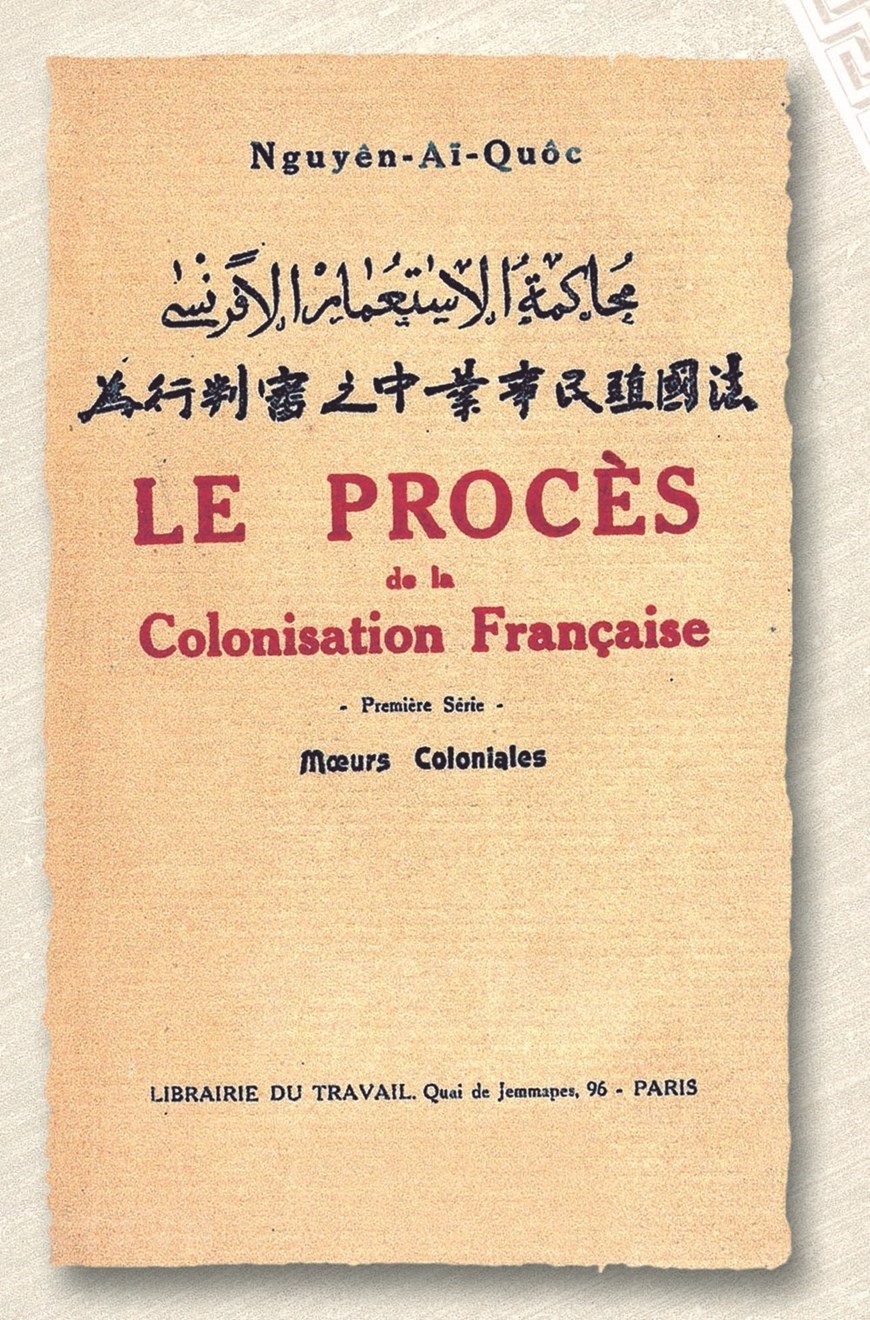
entitled ‘French Colonisation on Trial,’ which research on the nature of colonialism roused and encouraged colonised peoples to rise up to liberate themselves, was published in French language in Imprekor newspaper in 1925 for the first time (Photo: Archive)
-
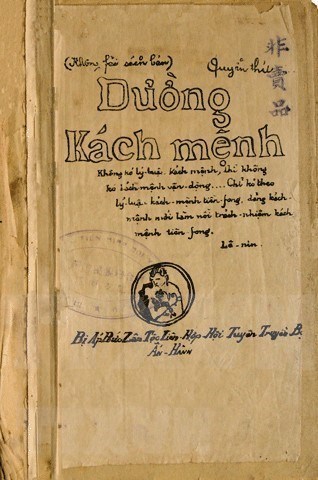
The book Duong Kach Menh (Revolutionary Path) includes lectures by Nguyen Ai Quoc at training courses for staff of the Vietnamese Revolutionary Youth League, held in Guangzhou, China, between 1925 and 1927 (Photo: Archive)
-
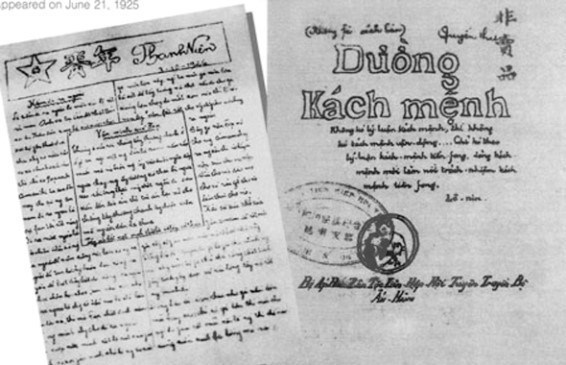
The book Duong Kach Menh (Revolutionary Path) includes lectures by Nguyen Ai Quoc at training courses for staff of the Vietnamese Revolutionary Youth League, held in Guangzhou, China, between 1925 and 1927 (Photo: Archive)
-
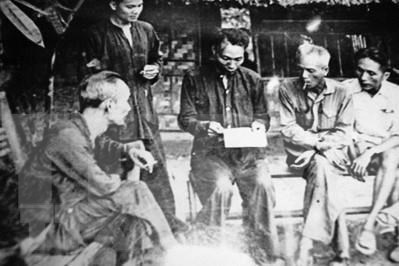
Nguyen Ai Quoc adopted the alias “Thau Chin” while living in Thailand in 1928-1929 (Photo: Archive)
-
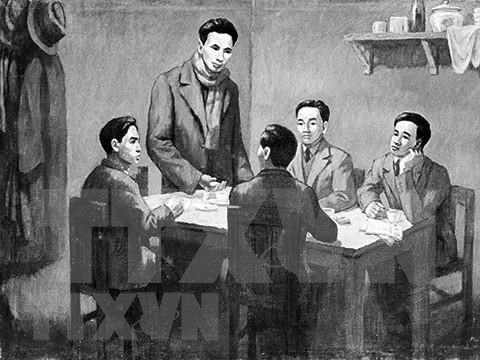
In spring 1930, he held a conference for the founding of the Communist Party of Vietnam in Kowloon (Hong Kong). (Photo: Archive)
-

Victorial Gaol in Hong Kong, where Nguyen Ai Quoc (then Tong Van So) was imprisoned for nearly 20 months, June 6, 1931 – January 22, 1933 while he was in Hong Kong (Photo: Archive)
-
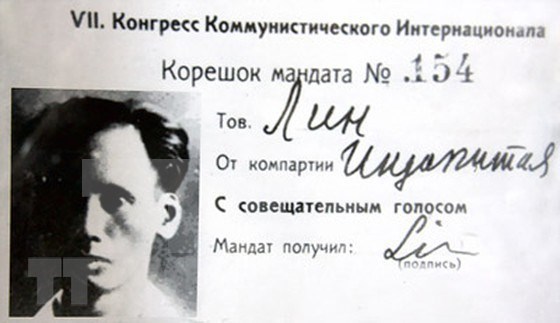
Delegate card of President Ho when attending the seventh Congress of the Communist International in Moscow, June 25 – August 21, 1935. He then adopted the alias Lin (Photo: Archive)
-
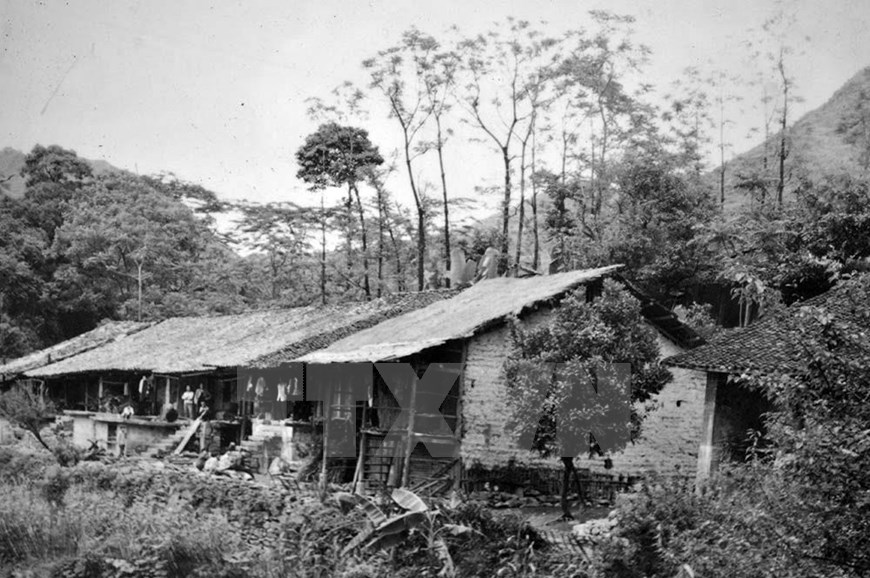
A house where Uncle Ho conducted political training courses in China, December 1940 (Photo: Archive)
-
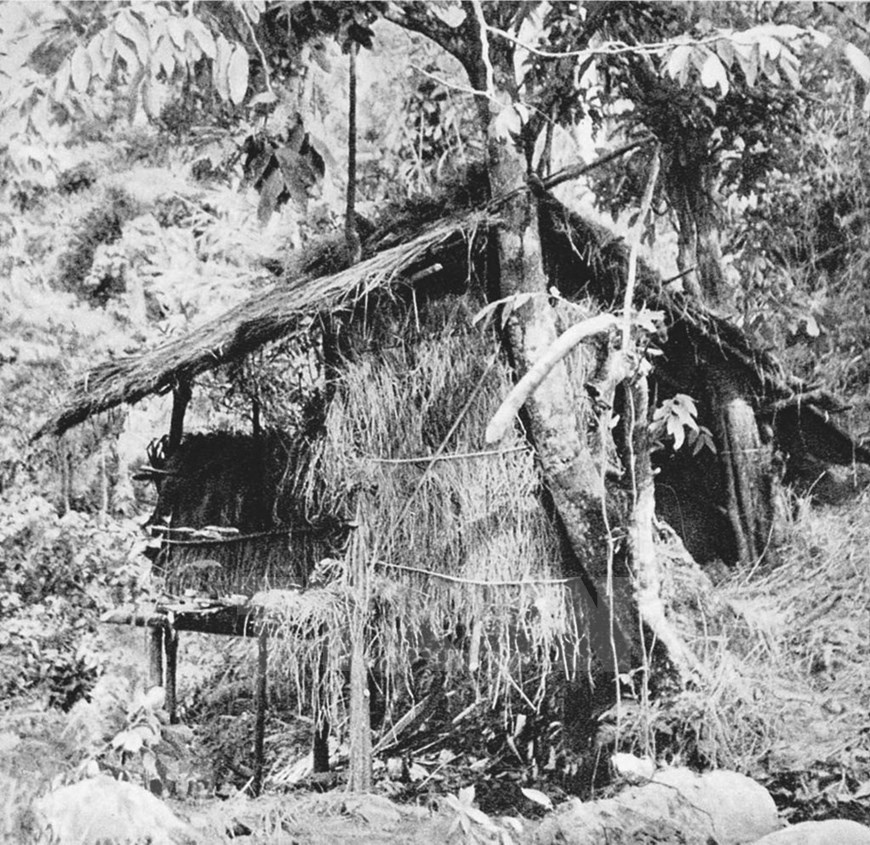
Small shack in Khuoi Nam, Pac Bo cave, Truong Ha commune, Ha Quang district, Cao Bang province, where Ho Chi Minh presided over the 8th session of the Indochina Communist Party (now Vietnam Communist Party) Central Committee in May 1941 (Photo: Archive)
-
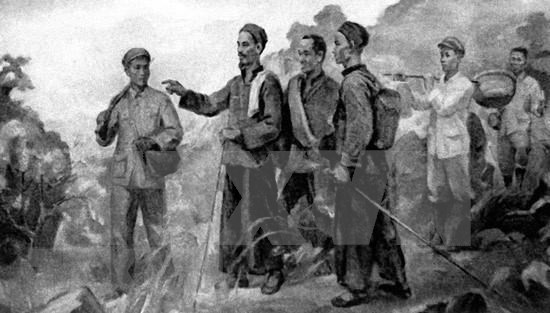
In January 28, 1941, Ho Chi Minh returned to Pac Bo, Cao Bang province from China to begin Viet Nam’s revolution, which eventually liberated the nation (Photo: Archive)
-
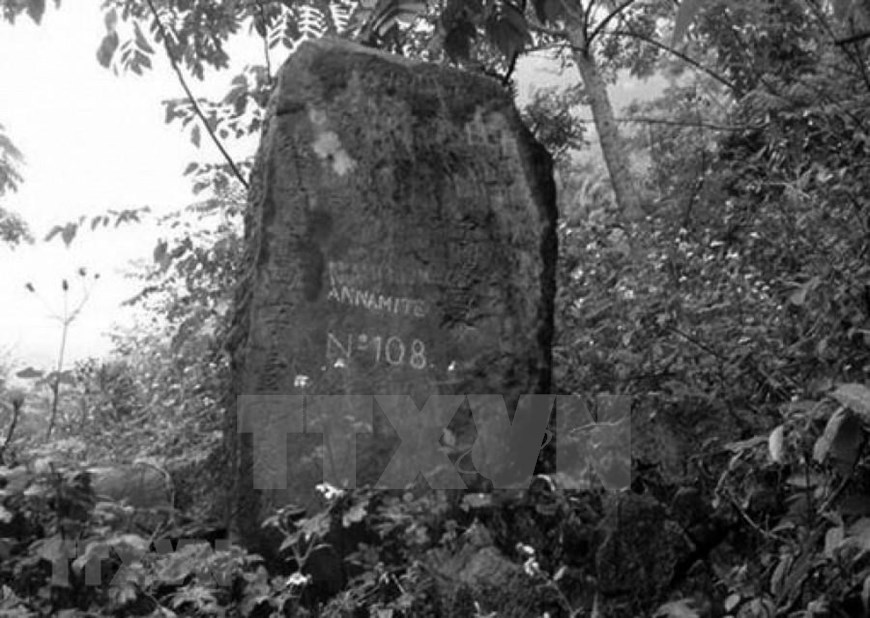
Landmark 108, where Ho Chi Minh set his foot home in January 28, 1941 (Photo: Archive)
-
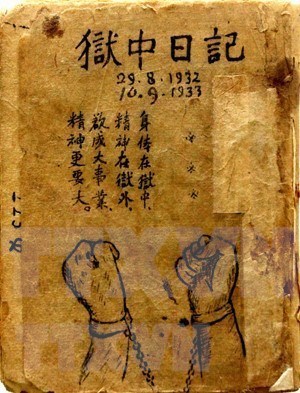
In August 1942, Ho Chi Minh came to China to search for an international alliance coordinating anti- fascist actions on the Indochina battlefield. He was arrested by the Jiang Jieshi authorities and jailed in Guangxi prisons. During 13 months of imprisonment, he wrote the work Nguc Trung Nhat Ky (Prison Diary) consisting of 134 poems in Chinese (Photo: VNA)
-
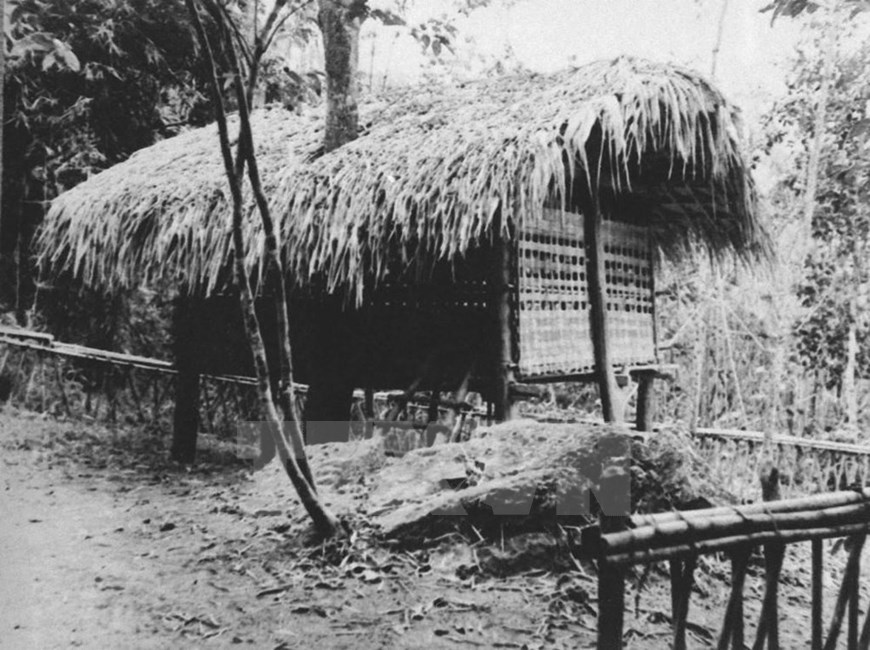
Na Lua Hut, where President Ho Chi Minh lived and worked from May to August 1945 (Photo: Archive)
-
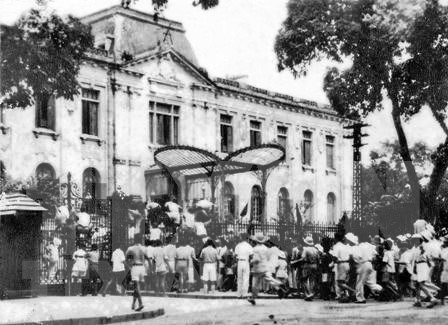
Hanoians went on a march and occupied the Residential Palace of the Tonkin Governor, now the State Guest House, on August 19, 1945 (Photo: Archive)
-
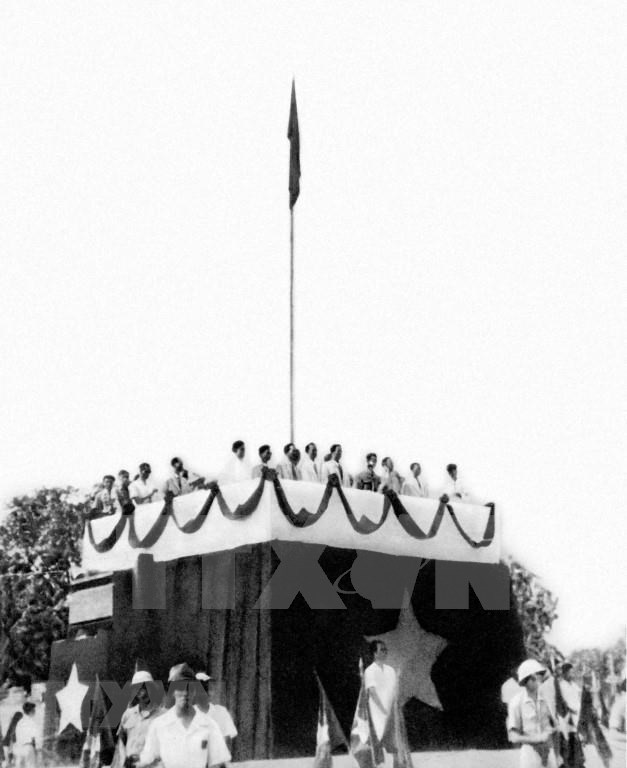
President Ho Chi Minh read the Declaration of Independence on September 2, 1945. The Democratic Republic of Vietnam was the first State of workers and farmers in Southeast Asia (Photo: Archive)
President Ho Chi Minh: From Nha Rong Wharf to historic Ba Dinh Square
On June 5, 1911, from Saigon port, Nguyen Tat Thanh set foot on a journey abroad in the ship Admiral Latouche Treville to France, beginning his journey for national salvation.



